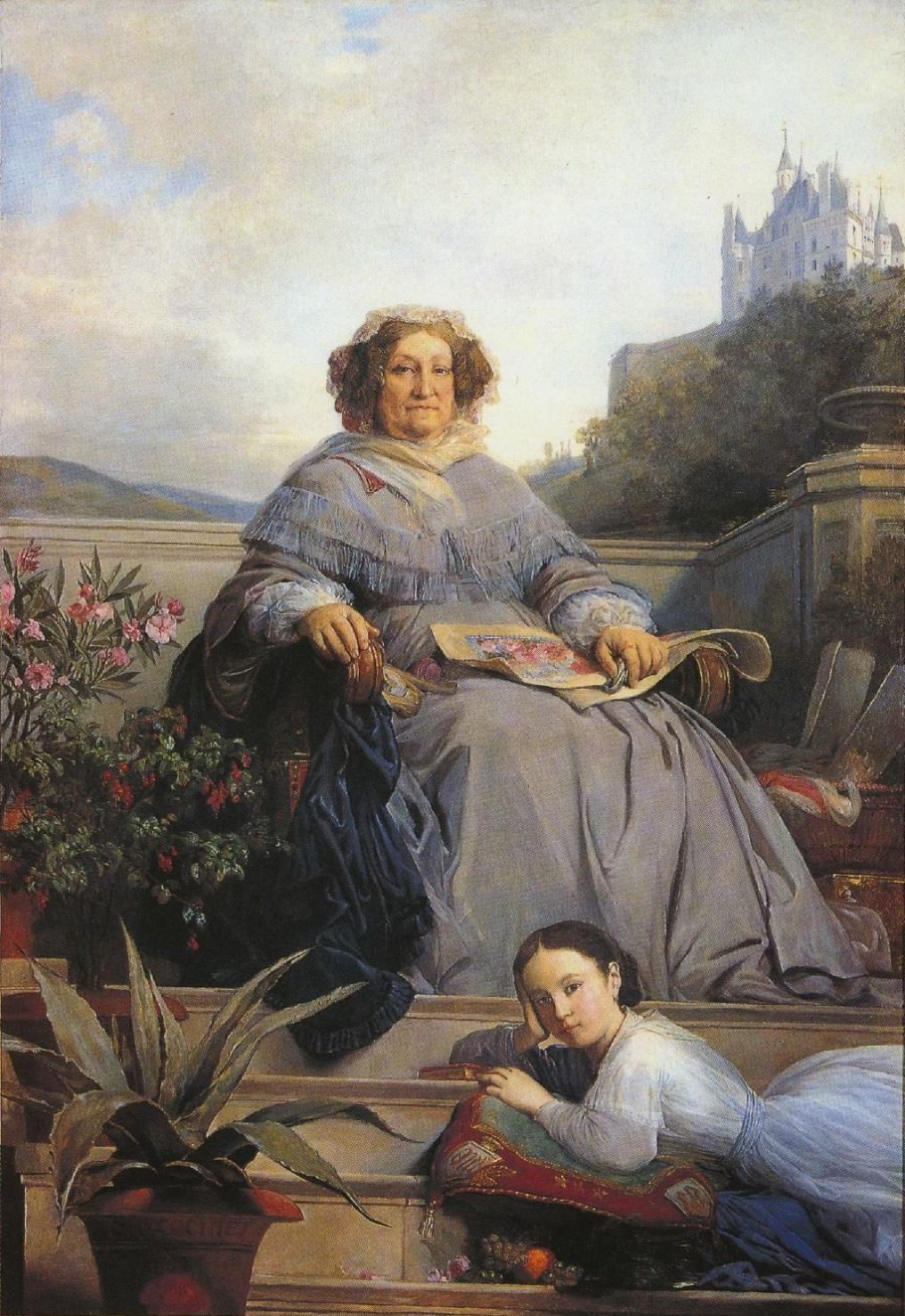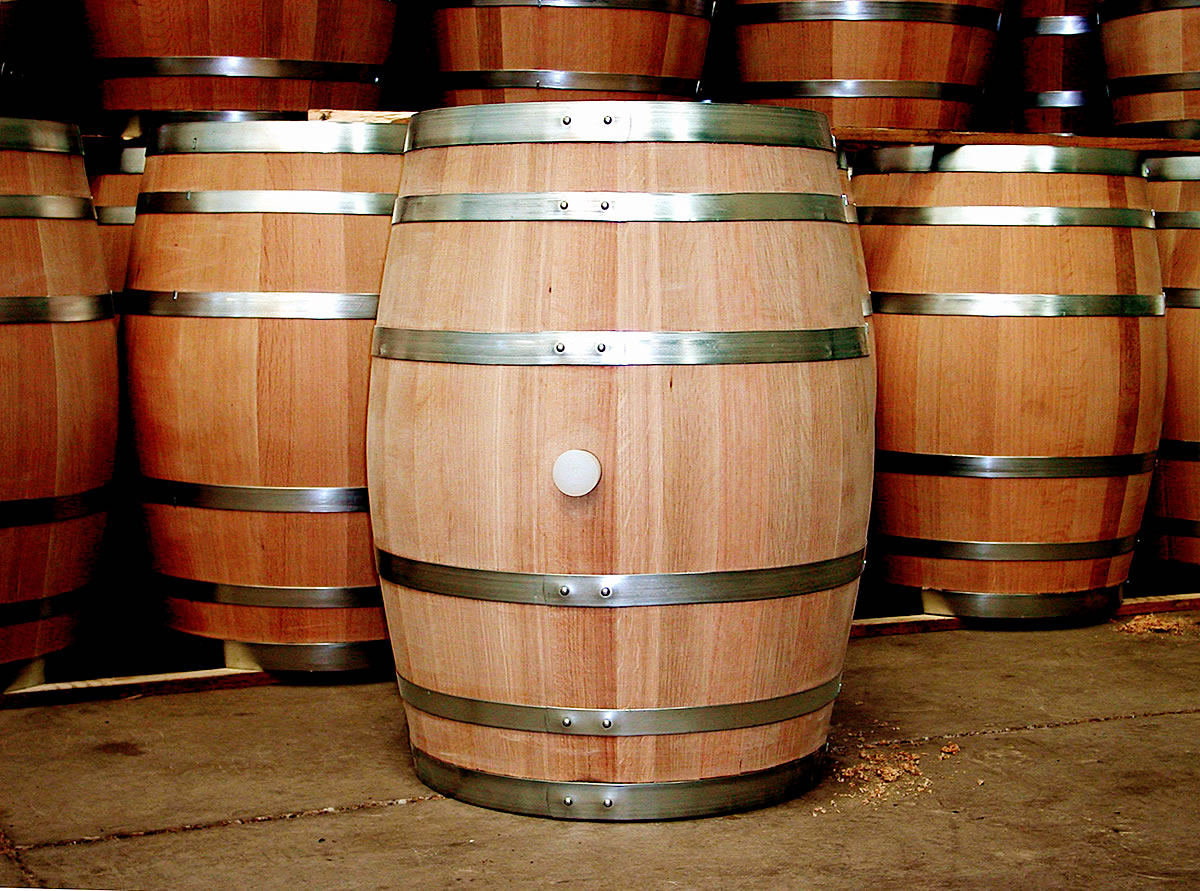|
Canard-Duchêne
Canard-Duchêne is a Champagne house founded in 1868 and currently part of the Thiénot group, owner of its own label Champagne Thiénot, plus Joseph Perrier and Marie Stuart. The House was founded by Victor Canard and Léonie Duchêne, who gave their names to the champagne house. History In 1860, a barrel-maker called Victor Canard met a winemaker called Léonie Duchêne. They fell madly in love and got married. They both shared a great passion for wine and so they worked collaboratively to produce their own unique Champagne. Using Victor's skills in farming grapes and ageing wines in barrels and Léonie's expertise in wine-tasting and viniculture, they produced a Champagne only 8 years after they met. Leonie was able to work in the wine industry during a time when the role of women was largely consigned to household duties. Both Victor and Léonie put their surnames together to create Canard-Duchêne. It is still one of the few wineries in Champagne to be family-run ... [...More Info...] [...Related Items...] OR: [Wikipedia] [Google] [Baidu] |
Champagne
Champagne (; ) is a sparkling wine originated and produced in the Champagne wine region of France under the rules of the appellation, which demand specific vineyard practices, sourcing of grapes exclusively from designated places within it, specific grape-pressing methods and secondary fermentation (wine), secondary fermentation of the wine in the bottle to cause carbonation. The grapes Pinot noir, Pinot meunier, and Chardonnay are used to produce almost all Champagne, but small amounts of Pinot blanc, Pinot gris (called Fromenteau in Champagne), Arbane, and Petit Meslier are vinified as well. Champagne became associated with royalty in the 17th, 18th, and 19th centuries. The leading manufacturers made efforts to associate their Champagnes with nobility and royal family, royalty through advertising and packaging, which led to its popularity among the emerging middle class. Origins Still wines from the Champagne region were known before Middle Ages, medieval times. The Anci ... [...More Info...] [...Related Items...] OR: [Wikipedia] [Google] [Baidu] |
Thiénot
Champagne Thiénot is a Champagne house founded in 1985 and based in Taissy, near from Reims. It is part of the Alain Thiénot Group, owner of different brands such as Canard-Duchêne, Joseph Perrier and Marie Stuart. Vineyards Vineyards spanning 27 hectares, of which half are classified as Grand Cru and Premier Cru: * Grand Cru (6.25 Ha) : Ay, Le Mesnil et Avize * 1er Cru (7.01 Ha) : Dizy, Cumières, Pierry et Tauxière See also * List of Champagne houses The listing below comprises some of the more prominent houses of Champagne. Most of the major houses are members of the organisation ''Union de Maisons de Champagne'' (UMC), [...More Info...] [...Related Items...] OR: [Wikipedia] [Google] [Baidu] |
List Of Champagne Houses
The listing below comprises some of the more prominent houses of Champagne. Most of the major houses are members of the organisation ''Union de Maisons de Champagne'' (UMC), accessed 2010-08-07 and are sometimes referred to as '' Grandes Marques''. Champagne houses See also * History of Champagne * * |
Ageing Wine
Ageing (or aging in American English) is the process of becoming older until death. The term refers mainly to humans, many other animals, and fungi; whereas for example, bacteria, perennial plants and some simple animals are potentially biologically immortal. In a broader sense, ageing can refer to single cells within an organism which have ceased dividing, or to the population of a species. In humans, ageing represents the accumulation of changes in a human being over time and can encompass physical, psychological, and social changes. Reaction time, for example, may slow with age, while memories and general knowledge typically increase. Of the roughly 150,000 people who die each day across the globe, about two-thirds die from age-related causes. Current ageing theories are assigned to the damage concept, whereby the accumulation of damage (such as DNA oxidation) may cause biological systems to fail, or to the programmed ageing concept, whereby the internal processes (epige ... [...More Info...] [...Related Items...] OR: [Wikipedia] [Google] [Baidu] |
Veuve Clicquot
Veuve Clicquot Ponsardin () is a Champagne house founded in 1772 and based in Reims. It is one of the largest Champagne houses. Madame Clicquot Ponsardin, Madame Clicquot is credited with major breakthroughs, creating the first known Champagne#Production, vintage champagne in 1810, and inventing the Traditional method#Riddling, riddling table process to clarify champagne in 1816.G. Harding ''"A Wine Miscellany"'' pp 45–47, Clarkson Potter Publishing, New York 2005 H. Johnson ''Vintage: The Story of Wine'' pg 337 Simon & Schuster 1989 In 1818, she invented the first known blended rosé champagne by blending still red and white wines, a process still used by the majority of champagne producers. During the Napoleonic Wars, Madame Clicquot made strides in establishing her wine in royal courts throughout Europe, notably that of Imperial Russia. She played an important role in establishing Champagne as a favored drink of upper class, high society and nobility throughout Europe ... [...More Info...] [...Related Items...] OR: [Wikipedia] [Google] [Baidu] |
Barrel
A barrel or cask is a hollow cylindrical container with a bulging center, longer than it is wide. They are traditionally made of wooden stave (wood), staves and bound by wooden or metal hoops. The word vat is often used for large containers for liquids, usually alcoholic beverages; a small barrel or cask is known as a keg. Barrels have a variety of uses, including storage of liquids such as water, oil, and alcohol. They are also employed to hold maturing beverages such as wine, Cognac (brandy), cognac, Armagnac (drink), armagnac, sherry, port wine, port, whiskey, beer, arrack, and sake. Other commodities once stored in wooden casks include gunpowder, Salt-cured meat, meat, fish, paint, honey, nails, and tallow. Modern wooden barrels for wine-making are made of English oak (''Quercus robur''), white Oak (wine), oak (''Quercus petraea''), American white oak (''Quercus alba''), more exotic is mizunara oak (''Quercus crispula''), and recently Oregon oak (''Quercus garryana'') ... [...More Info...] [...Related Items...] OR: [Wikipedia] [Google] [Baidu] |
Japan Wine Challenge
Japan is an island country in East Asia. Located in the Pacific Ocean off the northeast coast of the Asian mainland, it is bordered on the west by the Sea of Japan and extends from the Sea of Okhotsk in the north to the East China Sea in the south. The Japanese archipelago consists of four major islands—Hokkaido, Honshu, Shikoku, and Kyushu—and thousands of smaller islands, covering . Japan has a population of over 123 million as of 2025, making it the eleventh-most populous country. The capital of Japan and its largest city is Tokyo; the Greater Tokyo Area is the largest metropolitan area in the world, with more than 37 million inhabitants as of 2024. Japan is divided into 47 administrative prefectures and eight traditional regions. About three-quarters of the country's terrain is mountainous and heavily forested, concentrating its agriculture and highly urbanized population along its eastern coastal plains. The country sits on the Pacific Ring of Fire, ... [...More Info...] [...Related Items...] OR: [Wikipedia] [Google] [Baidu] |
Jancis Robinson
Jancis Mary Robinson OBE, ComMA, MW (born 22 April 1950) is a British wine critic, journalist and wine writer. She currently writes a weekly column for the ''Financial Times'', and writes for her website JancisRobinson.com, updated daily. She provided advice for the wine cellar of Queen Elizabeth II. Early life and education Robinson was born in Carlisle, Cumbria, studied mathematics and philosophy at St Anne's College, University of Oxford, and worked in marketing for Thomson Holidays. Career Robinson started her wine writing career on 1 December 1975 when she became assistant editor for the trade magazine '' Wine & Spirit''. In 1984, she became the first person outside the wine trade to become a Master of Wine. From 1995 until she resigned in 2010 she served as British Airways' wine consultant, and supervised the BA Concorde cellar luxury selection. As a wine writer, she has become one of the world's leading writers of educational and encyclopedic material on wine and ... [...More Info...] [...Related Items...] OR: [Wikipedia] [Google] [Baidu] |
International Wine Challenge
International is an adjective (also used as a noun) meaning "between nations". International may also refer to: Music Albums * ''International'' (Kevin Michael album), 2011 * ''International'' (New Order album), 2002 * ''International'' (The Three Degrees album), 1975 *''International'', 2018 album by L'Algérino Songs * The Internationale, the left-wing anthem * "International" (Chase & Status song), 2014 * "International", by Adventures in Stereo from ''Monomania'', 2000 * "International", by Brass Construction from ''Renegades'', 1984 * "International", by Thomas Leer from ''The Scale of Ten'', 1985 * "International", by Kevin Michael from ''International'' (Kevin Michael album), 2011 * "International", by McGuinness Flint from ''McGuinness Flint'', 1970 * "International", by Orchestral Manoeuvres in the Dark from '' Dazzle Ships'', 1983 * "International (Serious)", by Estelle from '' All of Me'', 2012 Politics * Internationalism (politics) * Political international, a ... [...More Info...] [...Related Items...] OR: [Wikipedia] [Google] [Baidu] |
International Wine & Spirit Competition
The International Wine & Spirit Competition is an annual wine and spirit competition founded in 1969 by the German/British oenologist Anton Massel. Each year the competition receives entries from over 90 countries worldwide. The awards given by the competition are considered as high honours in the industry. The judging occurs annually, in London. Only brands that pay the entry fee are judged, and two or four bottles of each entry must be supplied, depending on the category entered. Depending on the points out of 100 awarded, submitted drinks can receive gold outstanding (for spirits only), gold, silver, or bronze awards, and there are no limitations on how many of each which can be awarded. There is also an extensive range of trophies each year. Judging The judging process consists of blind tasting and panel discussion. Entries are judged by panels drawn from 250 specialists from around the world. Judging processes In 2019, IWSC wine judging moved to London for the first tim ... [...More Info...] [...Related Items...] OR: [Wikipedia] [Google] [Baidu] |




